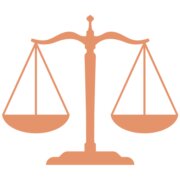Best Landlord & Tenant Lawyers in Richmond Hill
Share your needs with us, get contacted by law firms.
Free. Takes 2 min.
Free Guide to Hiring a Real Estate Lawyer
List of the best lawyers in Richmond Hill, Canada
About Landlord & Tenant Law in Richmond Hill, Canada
Landlord and tenant law in Richmond Hill, Ontario, is primarily governed by the Residential Tenancies Act, 2006 (RTA), which applies throughout the province of Ontario. These laws are designed to protect both tenants and landlords by establishing clear rules and responsibilities regarding residential rental housing. Whether you are a landlord or a tenant, understanding your rights and obligations is essential for maintaining a harmonious tenancy and resolving disputes if they arise.
Why You May Need a Lawyer
Navigating landlord and tenant issues can be complex due to the specific legal requirements and procedures involved. Common situations where individuals seek legal help include:
- Eviction proceedings or defending against eviction
- Rent increases and disputes over rent arrears
- Issues related to maintenance, repairs, or health and safety standards
- Illegal entry or privacy violations by landlords
- Unlawful lease terminations
- Disputes over damage deposits or unpaid utility bills
- Problems interpreting lease or rental agreements
- Negotiating or drafting a lease
- Responding to notices from the Landlord and Tenant Board
- Discrimination or harassment claims within the housing context
A lawyer with experience in landlord and tenant matters can provide guidance, help you understand your rights, advocate on your behalf, and work towards resolving disputes efficiently.
Local Laws Overview
In Richmond Hill, landlord and tenant matters fall under the jurisdiction of Ontario’s Residential Tenancies Act, 2006, which provides a comprehensive framework for residential leases, rent, maintenance, and dispute resolution. Key aspects include:
- Rent Control: Most rental units have limits on how much rent can be increased each year, as set by Ontario’s annual rent increase guideline.
- Security Deposits: Landlords can only collect rent deposits up to one month’s rent (last month’s rent), and cannot collect security or damage deposits.
- Notice Periods: Strict timelines exist for giving notice regarding termination of tenancy or rent increases.
- Maintenance and Repairs: Landlords are responsible for maintaining the property in a good state of repair and complying with health and safety standards, regardless of what the lease says.
- Entry: Landlords must provide at least 24 hours’ written notice before entering a tenant’s unit, unless it is an emergency.
- Evictions: Can only occur through an order from the Landlord and Tenant Board (LTB), not unilaterally by the landlord.
- Lease Agreements: Standardized lease agreements are recommended, and verbal agreements are also legally binding in most cases.
While the RTA provides the main guidelines, local by-laws (such as property standards and licensing requirements) can also affect rental properties in Richmond Hill.
Frequently Asked Questions
What is the role of the Landlord and Tenant Board (LTB)?
The LTB resolves disputes between landlords and tenants and provides information about their rights and responsibilities under the Residential Tenancies Act.
Can a landlord enter my rental unit without my permission?
Generally, landlords must provide 24 hours’ written notice before entering a unit and may only enter during specific times, except in emergencies.
How much can my landlord increase my rent?
For most rental units, rent can only be increased once every 12 months and by the percentage set by Ontario’s annual rent increase guideline unless an exemption applies.
What should I do if my landlord refuses to make repairs?
Tenants should first make a written request to the landlord. If the issue is not resolved, you can file a maintenance application with the Landlord and Tenant Board.
How can a landlord evict a tenant?
A landlord must follow a legal process by providing the proper notice and obtaining an eviction order from the Landlord and Tenant Board. Self-help evictions are illegal.
What happens if a tenant does not pay rent?
If a tenant does not pay rent, the landlord can serve a Notice to End Tenancy for Non-payment of Rent. If the rent is not paid or an agreement isn’t reached, the landlord can apply to the LTB for an eviction order.
Is a verbal lease agreement valid?
Yes, verbal agreements are legally binding in Ontario for most types of residential tenancies, though written leases are recommended for clarity.
Can my landlord require a security or damage deposit?
No, Ontario law does not allow landlords to request security or damage deposits. They may collect a deposit only for the last month's rent.
Does the landlord have to provide heat and hot water?
Yes, landlords are responsible for providing and maintaining essential services, such as heat, hot water, and electricity, unless the lease states otherwise and the tenant controls the service directly.
Are there protections against discrimination in rental housing?
Yes, the Ontario Human Rights Code prohibits discrimination in housing based on race, age, gender, family status, disability, and other protected grounds.
Additional Resources
- Landlord and Tenant Board (LTB): Offers forms, guides, and information on tenant and landlord rights and dispute resolution procedures.
- Ontario Ministry of Municipal Affairs and Housing: Provides tenants’ guides, housing standards and information about legal responsibilities.
- Community Legal Clinics: Organizations like the Community Legal Clinic of York Region provide free legal help for qualifying low-income individuals regarding landlord and tenant issues.
- Richmond Hill By-law Services: Addresses property standards or local by-law issues relating to rental units.
- Ontario Human Rights Commission: Offers guidance if you believe you have experienced discrimination in rental housing.
Next Steps
If you are facing a landlord and tenant issue in Richmond Hill, you can take these steps:
- Document your situation thoroughly by keeping copies of all notices, correspondence, and agreements between you and the other party.
- Review your rights and obligations under the Residential Tenancies Act and, where applicable, Richmond Hill by-laws.
- Contact the Landlord and Tenant Board or a community legal clinic for initial advice or assistance in filing applications or responding to notices.
- Consider consulting with a lawyer experienced in landlord and tenant law for tailored legal advice, especially if your matter involves complex disputes, rent arrears, or possible eviction.
- If discrimination is involved, you may also wish to contact the Ontario Human Rights Commission or seek assistance from advocacy agencies.
Taking timely action ensures you have more options to resolve your matter effectively. Legal professionals and local organizations can help you navigate the process and protect your rights as a landlord or tenant.
Lawzana helps you find the best lawyers and law firms in Richmond Hill through a curated and pre-screened list of qualified legal professionals. Our platform offers rankings and detailed profiles of attorneys and law firms, allowing you to compare based on practice areas, including Landlord & Tenant, experience, and client feedback.
Each profile includes a description of the firm's areas of practice, client reviews, team members and partners, year of establishment, spoken languages, office locations, contact information, social media presence, and any published articles or resources. Most firms on our platform speak English and are experienced in both local and international legal matters.
Get a quote from top-rated law firms in Richmond Hill, Canada — quickly, securely, and without unnecessary hassle.
Disclaimer:
The information provided on this page is for general informational purposes only and does not constitute legal advice. While we strive to ensure the accuracy and relevance of the content, legal information may change over time, and interpretations of the law can vary. You should always consult with a qualified legal professional for advice specific to your situation.
We disclaim all liability for actions taken or not taken based on the content of this page. If you believe any information is incorrect or outdated, please contact us, and we will review and update it where appropriate.













